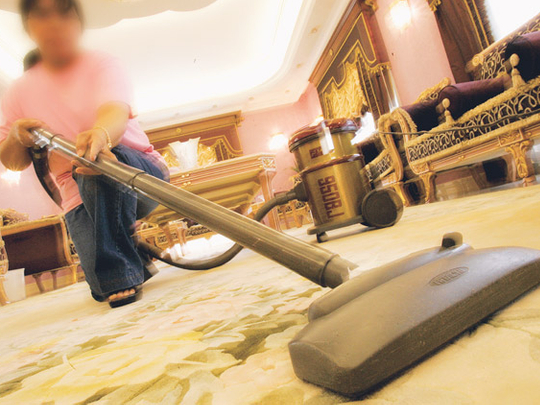
Cairo: Kuwaiti households are in the grip of an acute shortage of domestic workers during the current month of Ramadan partly due to a ban on labourers from the Philippines and low hire fees, according to owners of recruitment offices in the country.
They said Kuwait has become a destination for house workers above the age of 45 years because of the low recruitment costs, prompting overseas employment agencies to shift their sights to other Gulf countries offering lucrative packages.
“The age of workers imposed on citizens goes beyond 45 years. They don’t suit work in our houses,” Riad Al Khalifa, an owner of a domestic labour office, told Kuwaiti newspaper Al Rai.
“The Kuwaiti households haven’t got adapted to labourers other than the Filipinos,” he added. “The situation should be addressed, visas resumed and things return to normalcy,” he added.
In May, Kuwait announced suspending the issuance of all visas for Filipino workers in reaction to what it said was Philippine authorities’ failure to comply with a labour agreement previously reached between the two countries. Efforts to resolve the dispute have yet to bear fruit.
According to Al Khalifa, several recruitment offices were forced to shut down for being unable to cope with the current situation. “Lowering prices (of hiring) doesn’t benefit the citizen. It does harm him because the workers are below expectations and have later to be replaced,” he said.
In January, Kuwait set maximum fees for recruiting overseas domestic workers.
Accordingly, price caps of hiring domestic workers from Asian countries were set at KD750 (about Dh9,000), and from African countries at KD575.
Despite the ban on new labour from the Philippines, the number of domestic workers in Kuwait reached 811,000 last October, up from 583,000 in late 2021.
They are mostly from India, the Philippines, Sri Lanka, Bangladesh, and Nepal.
Kuwaiti expert on house labour Munir Al Usaimy said the Ministry of Commerce’s decision setting maximum recruitment fees including the ticket cost has turned Kuwait into a “shelter for old domestic workers”.
He argued that overseas employment offices now prefer to dispatch well-trained and young workers to other Gulf countries offering more rewarding deals.
“This situation not only causes trouble to the Kuwaiti families, but also places a burden on the health system in the country, given the high likelihood that the old workers will seek hospital help,” he added.











